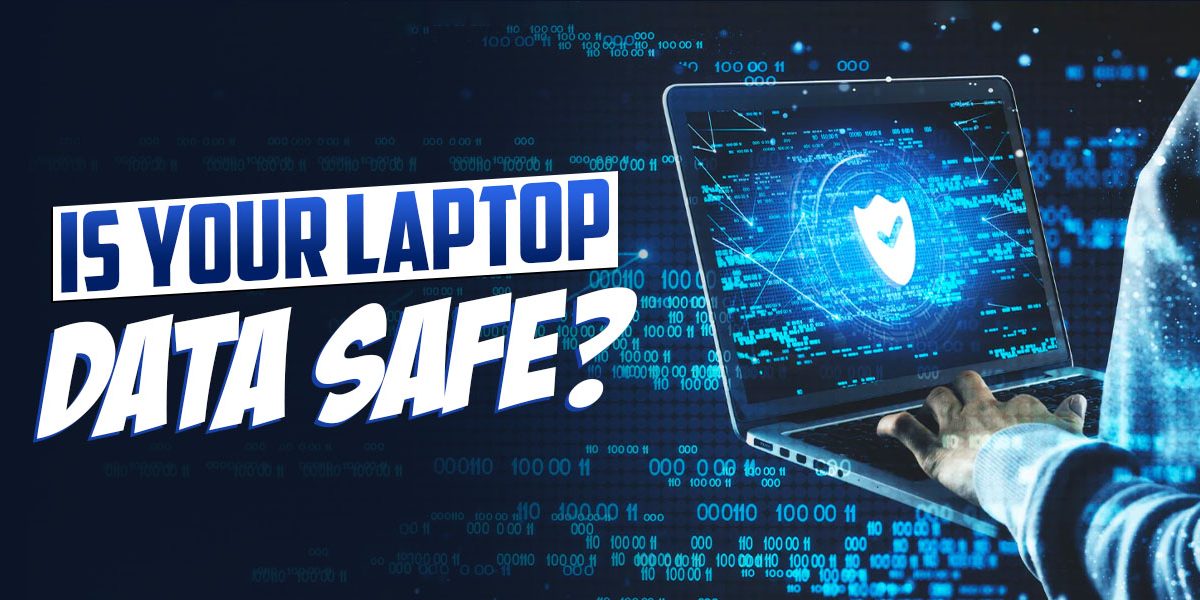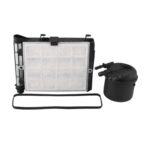With increased reliance on digital devices, securing your laptop and its data has become more crucial. From cyber threats to physical theft, laptops are vulnerable to risks that can compromise your sensitive information. These security tips can keep your data safe, whether working remotely, traveling, or using public networks.
By using disk encryption, reliable antivirus software, and secure cloud backups, you can significantly reduce your laptop’s exposure to threats. Read on for a complete guide to protecting your laptop with smart security practices and recommendations from CHUWI products, which can make a meaningful difference in your data protection.
1. Start with Strong Passwords and Biometrics
A strong, unique password is your laptop’s first line of defense. This should be at least twelve characters and include numbers and symbols, as well as a combination of upper-case and lower-case letters.
For even further security, you can opt for fingerprint login if this feature is available on your laptop. Security options like fingerprints or a face ID are a little more difficult to crack, making online security less compromisable. This extra security measure is perfect for anyone who wants easy, secure access to their computer.
2. Keep Software and Systems Updated
The use of outdated software on laptops tends to make the development and subsequent utilization of laptops sensitive since the previous types of software do not possess vital security patches. It is also necessary to always update the operating system, antivirus, and any utility or application, preferably those that you use often. Allow updates to be done automatically so that security updates are done in real time when available.
CHUWI HeroBook Plus is installed with the Windows 11 operating system, so one will not have to install it because it comes with auto updates. It is an efficient power-saving laptop, which is extremely useful for users who travel frequently and need full protection without worrying about the battery.
3. Use Trusted Antivirus and Anti-Malware Software
Installing reputable antivirus and anti-malware software is essential for scanning and blocking harmful software. Good antivirus programs provide real-time protection, detecting malware or suspicious activities before they cause harm. Popular options include Norton, McAfee, and Bitdefender, which offer robust, multi-layered laptop protection.
For an additional layer of security, consider software packages that offer internet security, parental controls, and security system protection.
4. Enable Disk Encryption to Protect Data
Enabling disk encryption ensures that data on your laptop’s hard drive is protected, even if the laptop is lost or stolen. Windows BitLocker and macOS FileVault are popular encryption tools that convert data into unreadable code, which can only be accessed with a password or key. Encrypted data remains safe, as unauthorized users cannot read it without the correct decryption information.
5. Use a VPN on Public Wi-Fi Networks
The mailing passing through Public Wi-Fi networks is vulnerable to hacking by other people. A VPN hides and securely protects your traffic to another network over the internet by creating a tunnel around your connection to the intended network. This is particularly useful since using a VPN makes it hard for hackers to securely compromise data when using public networks.
The CHUWI’s MiniBook is easy to carry, and with its design, you would hardly notice the weight. It was intended to be used while traveling. VPNs are an ideal partner that enables users to surf securely in cafes, hotels, or airports. With a very portable design, MiniBook allows you to remain connected and safe on business trips or touring easily.
6. Back Up Your Data Regularly
Data loss can occur unexpectedly due to hardware issues, theft, or cyber-attacks. Regular data backups provide an extra layer of security, ensuring you can recover your information in an emergency. Use both external hard drives and secure cloud services for comprehensive backup solutions. Cloud storage, such as Google Drive or Dropbox, provides convenient access to your files anywhere, while an external hard drive gives you offline access and an additional backup.
7. Practice Safe Online Behavior
It is also important to note that your online behavior can influence the laptop’s security. Do not click on a link, download any files, or open unknown emails, as this can lead to malware and phishing scams. Always check the links before clicking, even if they are from trusted sites, and never download software from dubious sites.
Another good safety measure is not to accept USBs or external hard drives from people one does not know, as they contain viruses and spying software. Browsing safely and enhancing security measures decreases the possibility of getting hacked or being attacked by hackers.
Conclusion
There are a few important reasons why you must consider having the best plans for protecting your laptop’s data, whether for personal or work use. There are various measures you can take to secure your laptop. They include enabling biometric authentication, disk encryption, installing antivirus, or arranging automatic updates.
Combined with proper internet etiquette when shopping online and practicing secure browsing with reliable backups and VPN when at public hotspots, you will have a good security plan. Incorporating CHUWI’s versatile range of laptops can also make a huge difference, as they are built with convenient security features and data protection capabilities. By following these security tips, you can feel confident that your data and personal information are safe.












